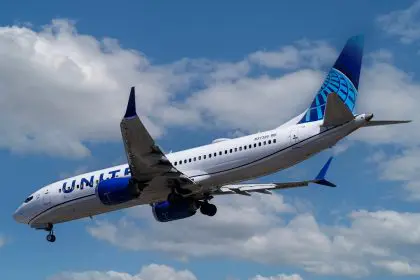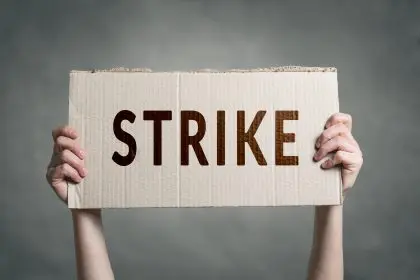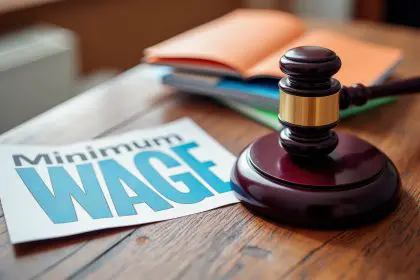The evolving landscape of marijuana legalization has led many to believe that recreational and medicinal cannabis use is widely accepted across all professions. However, this assumption couldn’t be further from the truth. Despite the growing acceptance of marijuana in many states, several surprising industries and job roles still enforce strict no-tolerance policies when it comes to weed. Whether it’s due to federal regulations, safety concerns, or company policies, there are certain careers where cannabis use can be a significant barrier to employment.
Understanding the landscape of marijuana legalization
Marijuana laws have changed drastically over the past few years. Many states have legalized recreational and medicinal use, and this has led to a shift in public perception. Yet, these changes do not universally apply to all sectors, especially those that are heavily regulated or associated with public safety. Even in states where weed is legal, federal laws and specific industry standards often override state regulations, leaving many jobs off-limits to cannabis users.
1. Federal government positions
The federal government, including agencies like the FBI, DEA and even the IRS, still considers marijuana illegal under federal law. As a result, any position within a federal agency is typically off-limits to those who use cannabis. Even if you have a prescription for medical marijuana, the federal government’s zero-tolerance policy doesn’t make exceptions. For those aspiring to work in law enforcement, national security or any federal role, a history of marijuana use can be a disqualifying factor.
The importance of federal compliance
When it comes to federal positions, adherence to federal laws is nonnegotiable. The government is particularly strict about drug use due to the sensitive nature of these roles, which often involve handling confidential information, enforcing laws and ensuring national security. Even if you’ve only used marijuana in states where it’s legal, it could still disqualify you from a federal job.
2. Commercial pilots
Flying a plane requires an impeccable level of precision, focus and judgment. The Federal Aviation Administration (FAA) has strict rules against marijuana use for pilots, even in states where it’s legal. The reason is clear: the safety of hundreds of passengers depends on the pilot’s ability to make quick, sound decisions under pressure. Even off-duty use of marijuana can lead to failed drug tests and potential job loss.
Safety above all
For pilots, the mantra is safety first. Marijuana can impair cognitive and motor skills, which are critical when flying an aircraft. The FAA’s strict drug testing protocols are in place to ensure that pilots are not under the influence of any substances that could hinder their ability to perform their duties safely.
3. Emergency medical technicians (EMTs)
EMTs are often the first responders in medical emergencies, making split-second decisions that can mean the difference between life and death. Given the high stakes, there is no room for error, and many employers require EMTs to abstain from marijuana use. The potential for impaired judgment — even from past use — is enough for many health care providers to maintain strict no-tolerance policies.
The demand for clear judgment
The role of an EMT is high-pressure and demands absolute clarity of mind. Even though marijuana might be legal, any history of use could raise concerns about an EMT’s ability to perform under stress, leading to disqualification from these critical positions.
4. Truck drivers
Truck driving is a demanding job that involves long hours on the road and the responsibility of transporting goods safely across the country. The Department of Transportation, or DOT, regulates commercial drivers and enforces a zero-tolerance policy for marijuana use. Even with marijuana legal in many states, truck drivers must comply with federal regulations, which strictly prohibit the use of weed.
Navigating federal regulations
For truck drivers, adhering to DOT regulations is a must. Since they often cross state lines, they must comply with federal laws, which still classify marijuana as an illegal substance. Regular drug tests ensure that drivers are sober and capable of operating large vehicles safely.
5. School bus drivers
Similar to truck drivers, school bus drivers are subject to strict regulations due to the nature of their job. Transporting children safely requires full attention and responsibility, and any use of marijuana is seen as a risk to that responsibility. School districts across the country enforce strict drug policies, often conducting random drug tests to ensure the safety of students.
Protecting the most vulnerable
School bus drivers are entrusted with the safety of children, which means there is no tolerance for anything that could impair their ability to drive safely. Even in states where marijuana is legal, school districts often follow federal guidelines that prohibit its use.
6. Health care workers
Doctors, nurses, and other health care professionals are held to high standards due to the trust placed in them by patients. Even in states where marijuana is legal, many hospitals and clinics enforce strict no-drug policies. The reasoning is simple: health care workers are responsible for the well-being of their patients, and any substance that could impair their ability to provide care is unacceptable.
Trust and responsibility in health care
Health care workers must maintain the highest level of professional conduct, which includes abstaining from marijuana use. Patients trust their providers to be at their best at all times, and any impairment could lead to mistakes with serious consequences.
7. Childcare providers
Working with children requires patience, energy and a clear mind. Many daycare centers and schools have strict policies against marijuana use, regardless of its legal status in the state. Background checks and drug tests are common, ensuring that those responsible for caring for children are free from substances that could affect their performance.
Ensuring a safe environment for children
Childcare providers are responsible for the safety and development of young children. Marijuana use, even off-duty, can raise concerns about the provider’s ability to maintain a safe and nurturing environment. This leads many employers to implement strict no-tolerance policies.
The balancing act of legalization and employment
As marijuana legalization continues to spread, the tension between state laws and federal regulations remains a significant challenge for job seekers. While cannabis may be legal in your state, it doesn’t guarantee that employers will be lenient about its use. In fact, many industries — especially those related to public safety, health care and federal government roles — maintain strict no-drug policies.
If you’re considering a career in any of the fields mentioned above, it’s crucial to understand the potential implications of marijuana use on your employment prospects. The changing legal landscape doesn’t necessarily translate to universal acceptance — and in many cases, it can still cost you a job. Always be aware of the specific policies of your chosen profession and weigh the risks before using cannabis.
By understanding these surprising restrictions, you can make informed decisions about your career path and ensure that your lifestyle choices align with your professional goals.
This story was created using AI technology.

















